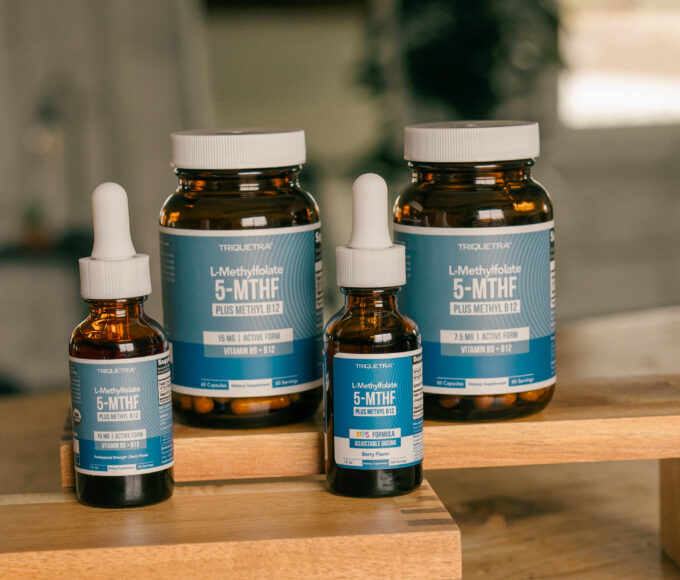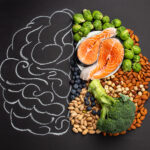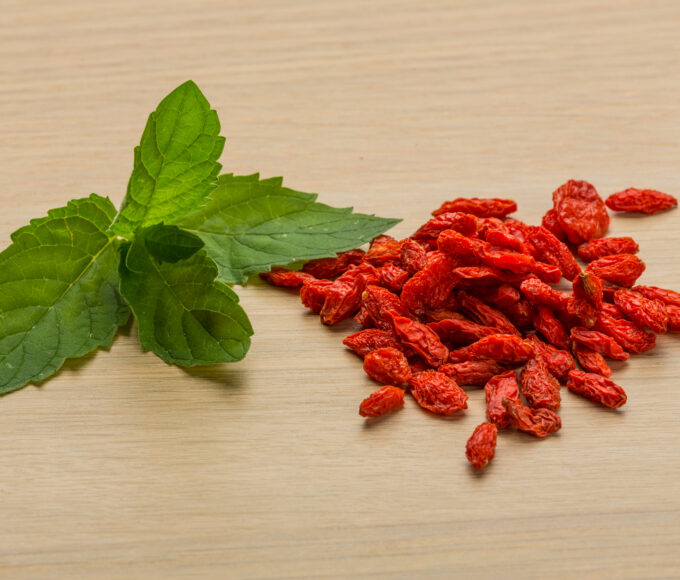You’ve probably heard a lot lately about probiotic supplements for gut health, but what exactly are they, and why are they so important?
In simple terms, they are the “good” bacteria that live in your gut and help keep the digestive system functioning correctly. They may improve digestion, boost the immune system, or help to maintain good health.
So, let’s get informed about these tiny helpers! Read on to learn more about:
- Prebiotics, probiotics, synbiotics, and postbiotics
- Health benefits
- How it works
- Sources
- Possible side effects and risks
- Dosage and timing
- Safety and efficacy
What Are Probiotics, Prebiotics, And Synbiotics?
Probiotics are live bacteria and yeast in your gut; they help maintain a healthy balance of organisms by slowing down the growth of harmful bacteria. They include nutrients like vitamins B and K. Don’t worry; there’s a list of sources and foods in this blog that are packed with these good gut warriors.
On the other hand, prebiotics are food for probiotics. These non-digestible plant fibers fuel the good bacteria in your gut.
Finally, postbiotics are metabolic by-products produced by probiotics. These are short-chain fatty acids that promote healthy bacterial growth.
Keeping your gut healthy is essential so you won’t get sick. A balanced gut microbiome prevents inflammation, which causes various diseases.
Poor diet is one of the reasons for this imbalance. Probiotics help maintain this balance, but it’s also vital for you to eat the right foods to boost your gut health.
To sum it up, prebiotics feed probiotics, while postbiotics are beneficial by-products. They all promote good health.
What are the Potential Health Benefits of Prebiotics, Probiotics, Synbiotics, and Postbiotics?
Glenn Gibson and Marcel Roberfoid coined the term “prebiotics” in 1995. They also introduced “synbiotics” that same year–these describe the combination of prebiotics and probiotics that work well together.
Probiotics were discovered earlier, over a century ago. Stamen Grigov, a Bulgarian physician and microbiologist, and Elie Metnikoff, a Russian scientist and Nobel Prize winner, came upon these “friendly bacteria” in 1905 and 1907, respectively.
In mid-2021, the International Scientific Association of Probiotics and Prebiotics proposed a postbiotic definition. Postbiotics contain living or non-living microorganisms, with or without their by-products. They give health benefits when consumed.
Prebiotics, probiotics, and postbiotics keep the balance of your gut microbiota. It’s a community of microbes living in the gut. Additionally, they benefit the body in many ways. Discover the various ways these substances promote more than gut health.
An example is Flora Biome, which is a three-in-one formulation. It’s composed of pre-, pro-, and postbiotics.
What are the 11 Potential Health Benefits of Probiotic Supplements?
1. Ease Bowel Disorders

Inflammatory Bowel Disease (IBD) is inflammation of the different parts of the digestive tract. In contrast, irritable bowel syndrome (IBS) is a functional disorder affecting the digestive system. They are managed differently.
But they share some similar symptoms. Some of these are bloating, stomach pain, loose stools or constipation, and an urgency to use the toilet.
Gut problems are one of the more popular uses of probiotics. Some medical professionals have recommended it for IBS and IBD. In addition, studies have supported its use for these gut conditions.
Researchers looked into 38 studies starting in April 2020. They found that taking pre-, pro-, and synbiotics helped people with IBD go into remission with fewer symptoms. They also discovered that some kinds of probiotics were helpful for IBD. Taking 10 billion to 10 trillion daily is a good amount for IBD.
In contrast, a December study of the same year said earlier studies had mixed findings. It claimed that some probiotics might effectively induce and maintain remission, but others may have different results. They suggested more studies to see if a personalized combination of supplements could benefit people with IBD.
Regarding IBS, a 2022 review shows taking certain strains of probiotics can help people with it. The most common strains are Streptococcus thermophilus, Lactobacillus, Lactobacillus delbrueckii subsp. bulgaricus, and Bifidobacterium.
They reduce bloating, gas, belly ache, and toilet breaks. Moreover, they help slow down food’s time to move through the digestive tract. As a result, it reduces the number of bowel movements and also improves stool consistency.
2. Probiotic Supplements to Relieve Gut Problems

Another widespread use of probiotics is for gastroesophageal reflux disorder (GERD). A 2020 review of studies on probiotics’ use for GERD has shown positive results. But, the results are unclear and inconsistent according to the researchers. Moreover, only a few studies were of good quality.
They searched databases for studies on GERD, heartburn, regurgitation, and dyspepsia. Thirteen studies were included and rated as high quality (5 studies), medium quality (2 studies), or low quality (6 studies). One article included two probiotic groups for a total of 14 studies. Out of 14 comparisons, 11 studies (79%) showed positive benefits of probiotics on GERD symptoms.
- Five (45%) showed benefits on reflux symptoms
- Five (45%) showed improvements in dyspepsia symptoms
- Nine (81%) showed improvements in other upper stomach symptoms broken down into nausea, abdominal pain, and gas symptoms
The study found that probiotics can be helpful for GERD symptoms, specifically heartburn and regurgitation, but more research is needed to confirm it. The researchers suggested more high-quality studies with more participants. In addition, researchers need to do extended studies to check the benefits over time.
3. Control High Blood Sugar Levels

Other than probiotic supplements, studies have shown that prebiotics can help manage type-2 diabetes. Diabetes is a metabolic disease when your blood sugar levels are too high.
Studies suggest that inflammation is linked to diabetes. Inflammation is the body’s reaction when it’s fighting an infection. When left alone over time, inflammation can cause health problems like diabetes. This is because it can damage your pancreas, which produces the insulin hormone.
Insulin plays a role in regulating your blood sugar levels. If it becomes damaged due to inflammation, you can have a build-up of sugar in your blood.
Researchers conducted a study of 1,425 people who were healthy and some with gut problems. It looked into how different diets affect the gut microbiome and how it relates to inflammation.
The study reveals that certain foods were linked to either harmful or good gut bacteria. Moreover, it shows that some foods cause inflammation. Conversely, others help keep the gut healthy.
Other experts suggested in their study that prebiotics may be used as a therapy for diabetes. More research, though, is needed to understand better how prebiotics and gut microbiomes interact.
4. Help Manage Weight with Probiotic Supplements

Another metabolic disease is obesity, which is also related to type-2 diabetes. It doesn’t mean that if you are overweight, you also have diabetes. But like diabetes, experts claim that obesity can lead to inflammation.
Gut inflammation can contribute to weight gain. At the same time, when you gain weight, the excess fat can cause inflammation. It’s a vicious cycle that is hard to break. Probiotics may help reduce inflammation in the gut and help with weight loss.
For example, a study shows that a high-fat diet causes an imbalance in gut microbiota, leading to inflammation. This inflammation contributes to insulin resistance and obesity. But more studies are needed to see how food can cause inflammation and how it can lead to problems like obesity.
Studies have shown that probiotics have anti-inflammatory effects. It changes gut bacteria and improves gut health, which helps with obesity.
A review of studies reveals that probiotics and synbiotics can help with weight loss. Bifidobacterium and Lactobacillus are common probiotics, while new ones also show promising results. These are Faecalibacterium prausnitzii, Akkermansia muciniphila, or Clostridia.
5. Reduce the Risk of Cancers

Cancers can grow in many different body parts. It’s also uncertain if all cancers can benefit from prebiotics, probiotics, synbiotics, and postbiotics, but some studies suggest they may help reduce the risks of certain cancers.
Based on a study, prebiotics, probiotics, and postbiotics can help people with colorectal cancer. These substances reduce inflammation which improves gut health.
Moreover, it may positively affect other parts and functions of the body. Even though the findings are promising, the study suggests that researchers should do more studies. In addition, they said other researchers need to focus on the dose to ensure efficacy and safety of use.
A study suggests that these substances can promote oral health. Prebiotics, probiotics, synbiotics, and postbiotics may help prevent cancer growth due to oral infections.
The study further claims that prebiotics can work alone or with probiotics to prevent or manage oral cancer. They protect the mouth from cancer-causing agents and bacteria. They work by balancing the microbiome in the mouth.
Moreover, synbiotics boost protection against harmful agents. According to the study, they can all be used as a supplement to ease the side effects of cancer therapy.
6. Probiotic Supplements to Lower Risk of Heart Problems

Prebiotics and probiotics play a role in heart health. They may prevent, lower the risks, or slow down the development of heart diseases based on a review. Mainly, they improve heart disease markers. These are low-density lipoprotein cholesterol (LDL) and C-reaction protein (CRP).
Inflammation may contribute to heart disease. The review shows pre- and probiotics can change the balance of gut bacteria. By doing so, they reduce inflammation. They restore your healthy gut microbiome and promote the growth of good bacteria. These substances may also help slow down the growth of harmful bacteria.
Moreover, your gut microbiota produces metabolites, trimethylamine N-oxide or (TMOA), and short-chain fatty acids. Any imbalance in metabolites may contribute to heart problems. Based on the review, prebiotics, and probiotics modify these metabolites and help the gut and immune systems communicate. And the immune system is linked to heart health.
7. Enhance Immune Response to Viruses

Studies have shown that both probiotics and prebiotics, alone or in combination (synbiotics), can be used as disease therapy. It includes viral infections like human immunodeficiency virus (HIV) and human papillomavirus (HPV). Thus, probiotics and prebiotics also have a role to play in managing COVID-19. Additionally, it may strengthen the immune system before a flu shot.
Recent research has suggested that the human microbiome could be manipulated to protect against viral pathogens. It works by affecting host metabolism, immunity, and response to infection. It could be important for HIV and HPV. Moreover, it has implications for other viral infections, including those of the lungs, for which probiotic supplements may be effective.
Another review suggests that pro-, pre-, syn- and postbiotics may benefit COVID-19 prevention and management. Several clinical studies have already been completed. The results show that these interventions can reduce the severity of symptoms and the duration of the disease. But, the review notes that probiotics aren’t recommended for people with low immunity in corticosteroid therapy.
Finally, a study aimed to see if probiotics and prebiotics can improve the immune response to the flu shot in adults. It looked at 20 studies from different databases. The results show that people who took probiotics or prebiotics responded better to the flu shot. Probiotics or prebiotics can help boost the vaccine’s efficacy before getting a flu shot, especially in older adults.
The gut and lungs play a role in immune function. It affects your ability to fight the bacteria. Probiotics and post-biotics can help regulate immune function. It may protect you against TB based on recent studies.
8. Relieve Bacterial Vaginosis with Probiotic Supplements

A bacterial imbalance in the vagina causes bacterial vaginosis (BV). It can be prevented and managed with probiotics. They help grow good bacteria and prevent infections. Women with BV during pregnancy can have problems like premature birth and miscarriage.
Researchers reviewed studies to see how probiotics and prebiotics affect BV in non-pregnant and pregnant women. They found that prebiotics reduced the bad symptoms of BV. Pre- and probiotics balanced the vaginal bacteria. They also helped manage BV more than antibiotics did. The researchers did not see any side effects.
They concluded that using probiotics and pre- and probiotics for BV is safe. It can have short and long-term therapeutic effects. More studies are needed to be sure of the benefits.
You can normally find Candida on the skin, mouth, throat, gut, and vagina. It doesn’t cause harm unless it grows out of control. A study reveals that probiotic yeast has been found to be safe and effective against Candida infections. People can use it alone or with antifungal drugs to prevent drug resistance. More research is needed to understand systemic infections’ effects fully.
9. May Ease Depression

Researchers found that the results of studies suggest pro-, pre-, and postbiotics could benefit the brain-gut axis in animal models of depression. Clinical studies show probiotics seemed better at reducing depression symptoms than pre- and postbiotics, but, more research is needed to understand probiotic supplements or probiotic therapy’s safety and potential dangers.
Further, a 2022 study tested short-term, high-dose probiotics as add-on therapy for depression. People received either probiotics or a fake pill. The study reveals that the probiotics group had more reduced depressive symptoms than the other group.
The study also notes that increasing Lactobacillus strains was associated with reduced symptoms. The results suggest that add-on probiotics may improve depressive symptoms.
10. Probiotics May Work for Kidney Disease

A 2021 systematic review looked at 13 studies on the effects of probiotics, prebiotics, and synbiotics on biomarkers. It included inflammation, oxidative stress, and lipid profiles in people with chronic kidney disease (CKD).
The review found that microbial supplements reduced inflammation, improved oxidative stress, and changed lipid profiles compared to placebo. However, they also noticed that factors like the duration of treatment, participants’ BMI, type of supplement, and age affected the effects of these probiotic supplements.
The results suggest that probiotics, prebiotics, and synbiotics may help people with CKD at risk of heart problems. Further research is needed to understand the effects of the long-term use of these supplements.
At the same time, a 2022 meta-analysis reveals that probiotics can help manage diabetic kidney disease (DKD). The analysis examined 10 trials involving 552 participants to see how probiotics affected renal function, glucose, lipids, inflammation, and oxidative stress.
Results showed that probiotics led to lower serum creatinine levels, blood urea nitrogen, cystatin C, urinary albumin/creatinine ratio, and natrium in DKD patients. It also improved blood sugar control, fat metabolism, inflammation, and oxidative stress.
Subgroup analysis showed that taking multiple species probiotics, having a longer intervention duration, and taking a higher probiotic dose had the best results.
Overall, the analysis suggests that probiotics can help delay the progression of DKD.
11. May Enhance Athletic Performance

The International Society of Sports Nutrition (ISSN) released a position statement in December 2019. ISSN reviewed the use of probiotics in athletes and their impact on health, performance, and recovery.
They agreed that probiotics are live microorganisms that can benefit people in the right amount. These probiotics have been linked to many health benefits, like gut and immune health. But they said probiotic effects could vary based on strain and dose.
They further said that athletes have different gut microbiota than inactive people. It may affect the efficacy of probiotics. On the other hand, some strains can enhance nutrient absorption, immune response, and gut function in athletes.
Moreover, the minimum effective dose and method of delivery vary depending on the strain. They suggested that probiotic supplements should be properly labeled. It includes the type of organism and quantity.
Finally, probiotics could improve athletes’ body composition, testosterone levels, stress response, and cognitive function. More research, though, is needed to validate the benefits of probiotics.
ISSN identified these strains with specific doses. Some strains linked to increased athletic performance and recovery include B. coagulans, B. breve with S. thermophilus, L. delbrueckii ssp. Bulgaricus, and more. Other strains that may improve gut health in athletes are L. rhamnosus, B. bifidum, L. salivarius, and more. Finally, there’s L. casei Shirota, B. bifidum, S. salivarus thermophilus, and more for improved immunity.

How Do Probiotics Work?
More research is needed to understand how they work entirely. The exact action of probiotic supplements depends on the strain, the dose, and the person.
When people consume them, they can help improve the balance of bacteria in their gut. This condition makes it hard for “bad” bacteria to thrive. Based on a review and mechanisms of action study, probiotics can do the following:
- Colonization means they produce lactic acid to lower pH to slow down the growth of harmful bacteria.
- Competition happens when they help prevent harmful bacteria from sticking inside your intestines. Probiotics also keep the gut environment balanced.
- Modulation means they can boost your immunity, regulate inflammation, and improve gut-brain communication and metabolism.
As noticed, the gut plays a crucial role in the function of other organs. Experts call it the “gut-organ” axis, when the gut microbiome communicates with specific body organs. They broke it down into distinct axis:
- Gut-brain
- Gut-kidney
- Gut-liver
- Gut bone
- Gut-skin
- Gut-adipose
- Gut-heart
Any imbalance in the gut microbes can lead to health problems in any organs. Thus, it is crucial to keep the gut healthy. In addition, it highlights the importance of a good diet aided by probiotics.
What are the Sources of Probiotics?
Fermented foods are a great source of probiotics. Lactic acid bacteria (LAB) are vital for food fermentation, producing beneficial compounds for human and animal health.
LAB can be found in single or mixed cultures from fermented foods and can help maintain the balance of gut microbiota and improve the immune system. Popular probiotics include Lactobacillus, Bifidobacterium, Bacillus, Pediococcus, and yeast. Fortified foods and supplements are also considered sources of probiotics.
Fermented Plants
- Sauerkraut – Sauerkraut, made from fermented cabbage, is popular in Germany. Some studies note that it reduced irritable bowel syndrome (IBS) symptoms.
- Kimchi – Similar to sauerkraut, kimchi is made up of fermented vegetables. However, this food originated in Korea. Some evidence suggests that it may have an impact on gut microbiota. But more evidence has yet to be found on its effect on gut health and disease.
- Kombucha – It’s a popular fermented black or green tea drink originally from China. It contains a combination of bacteria and yeast to form a symbiotic culture (SCOBY). Moreover, experts claim it’s rich in probiotics that benefit gut health and metabolism. But more human trials are needed to back up these claims.
Fermented Foods
Based on a systematic review, fermented dairy milk has been linked to reduced heart disease risks. On the other hand, yogurt has been associated with reduced type-2 diabetes risks.
In addition, probiotic supplements in dairy food may also help lower blood fat levels and reduce weight. The researchers, though, said that the results should be interpreted with caution.
Similarly, fermented dairy foods have been known to improve gut health. Based on a review, they can also boost the immune system and reduce inflammation. Moreover, it may help in preventing diarrhea and heart problems.
- Yogurt – It’s made from fermented milk, an excellent probiotic source. Eating yogurt may help your gut microbiome from changes caused by taking antibiotics. Based on the study published at Nutrients, yogurt contains Bifidobacterium lactis BB-12, which was more effective at preserving gut bacteria than a fake pill.
- Kefir – It comes from fermented soy milk. Its probiotic activity may help control high blood fat, blood pressure, and blood sugar levels. It’s a good option since it’s inexpensive and easy to make. Moreover, it contains beneficial compounds, peptides, and metabolites.
- Cheese – A review of studies found that cheese is better than other dairy products in delivering probiotics to the gut. It’s because probiotics don’t change the composition of cheese. But it can change the flavor and texture.
Probiotics Supplements
Probiotics have different kinds. Supplements may contain any of these core live organisms or strains:
- Lactobacillus acidophilus
- Bifidobacterium bifidum
- Saccharomyces boulardii
- Streptococcus thermophilus
- Enterococcus
- Escherichia coli
- Bacillus
The World Gastroenterology Organisation Global Guidelines reviewed studies. They also came up with recommendations on probiotics for adults and infants. It includes the right product, formulation, and dose for managing various health problems. Take note that the effects vary for every person.
If you’re looking for the right probiotic, it’s important to pick the one with the right strains. Depending on your health and how you take it, you can find probiotics in powders, capsules, drinks, and more. Generally, supplements list the specific strain and how many are contained in each serving.
For your safety, it’s best to seek professional advice if you plan to take probiotics supplements.
What are the Side Effects and Risks of Probiotic Supplements?
Although probiotics are good for you, they can have possible side effects. Many studies list down the discomforts that anyone may experience:
- Gut symptoms like bloating and diarrhea
- Small intestine bacterial growth (SIBO)
- Allergic reaction
- Histamine intolerance
- Headaches
- Risk of infection
- Antibiotic resistance
Medical experts consider probiotics generally safe for healthy people. Like any substance, though, your risks are increased if you have any of these conditions:
- Immune system problems
- Gut problems
- Pancreatitis
- Severe allergies
- Seriously sick
- Have infections
- Had surgery or recently been hospitalized
- Taking medicines or supplements for better digestion
Seek a professional consult before taking probiotics if you have any of these conditions.
What are the Dosage and Timing?
Probiotic Supplements Recommended Dosage/Frequency of Use
There is no specific dosage and daily recommended intake of probiotics. It depends on your health problem and goals.
The American Family Physician noted that the typical daily dosage for children is 5 to 10 billion colony-forming units (CFU). Adult dosage is 10 to 20 billion CFU. However, a higher CFU doesn’t mean it can have better outcomes.
Some supplements may contain one or more “good” bacteria. However, the CFU may vary, so your healthcare provider may need to adjust the dose based on the results.
Additionally, the kind of supplement also dictates the frequency of use. People can take supplements all at once or in smaller doses throughout the day. The key is consistently taking them daily according to the label, with a healthcare provider’s approval.
Timing of Use
Studies have mixed findings when it comes to the timing of use. There’s no hard and fast rule.
For example, a study found that taking probiotics with a meal or 30 minutes before a meal had the best results. The capsule contained two lactobacilli and Saccharomyces cerevisiae boulardii.
In contrast, another study shows that timing doesn’t affect the ability of the strains to work. Two groups of participants took Bifidobacteria longum BB536 and Lactobacillus rhamnosus HN001 either 30 minutes before breakfast or after breakfast, respectively.
Some experts suggest taking supplements on an empty stomach so the “good” bacteria can survive better. Others say taking them before or about two hours after a meal is fine. Some clinicians suggest taking supplements after waking up or just before bedtime. So it’s best to follow the manufacturer’s label regarding timing.
Are Probiotic Supplements Safe and Effective?
The Journal of the American Medical Association (JAMA) published a study in 2018 entitled “Probiotic Safety-No Guarantees.”
Other experts have different point-of-view. They said the JAMA study highlighted good points on using probiotics with care, especially in vulnerable people. But they said that probiotics had helped many people. As a result, they continue to use probiotics for their specific health problems.
Questions still arise, but the medical field should continue to use them since probiotics can help without causing harm. They also said more research is needed to understand probiotics better. But existing evidence can not be ignored.
A 2019 review also suggests that “probiotics supplements might not be universally-effective and safe.” The review points out that probiotics restore the balance of bacteria in the gut. But they may have different effects on groups of people possibly at risk.
The review also noted that probiotics could impact health issues like allergies and infections. Moreover, one should consider the transfer of antibiotic resistance genes. In sum, the review said this is why it’s vital to have strict regulations when it comes to using probiotics.
The Food and Drug Administration does not regulate these supplements. Instead, they allow these supplements to be considered safe when added to foods or drinks.
Probiotic supplements have benefitted many people for years. People experience positive results, so they continue to use them. But, again, it is best to seek professional advice when you have safety concerns.
Contraindications of Probiotic Supplements
Probiotics are usually safe, based on most research studies. Some people, though, should be careful when using them. As mentioned earlier, these are people with short gut syndrome, weak immune systems, and older adults.
Precautions/Warnings
Probiotics are natural products and are not medicines or prescribed drugs. Yet it also comes with precautions.
- Always check with your healthcare provider when you have chosen a supplement. Your provider will tell you whether you can use it, especially if you take other medicines.
- Mention to your provider if you have other health conditions, infections, or have had operations.
- Tell your provider if you are pregnant or breastfeeding.
It’s vital to research a health problem to be able to pick the right probiotics. Keep in mind that a supplement may work for others based on studies. But it doesn’t always mean other people can experience the same results. Thus, speaking with your healthcare provider before taking supplements is best.

Frequently Asked Questions
Question 1: Are prebiotics the same as probiotics?
No, prebiotics are non-digestible fibers that fuel probiotics. Probiotics are live microorganisms like yeast and bacteria. Both help to keep the gut healthy.
Question 2: What is a synbiotic?
It is a combination of prebiotics and probiotics. They combine friendly bacteria and a food source as one.
Question 3: What happens when I consume too many probiotic supplements?
People likely experience an upset stomach. It includes bloating, gas, diarrhea, or constipation.
Bottomline
Probiotic supplements are essential in maintaining a healthy gut. They have plenty of benefits based on science. It includes better digestion and absorption of nutrients. Moreover, it improves metabolism and boosts immunity.
It’s equally important to note that they have their share of potential side effects and risks. We remind you to talk to your healthcare provider before taking probiotics.


















Leave a comment